HUNGRY FOR A CHANGE?
By 2030, Your Grocery Bill Could DOUBLE
How much will your dinner cost tomorrow?
Brace yourself: your weekly grocery haul might soon cost twice as much – and climate change is the silent culprit.
Rising temperatures, extreme droughts, and chaotic weather are decimating crops, disrupting supply chains, and pushing food prices into the stratosphere.
Experts warn that by 2030, staples like wheat, coffee, and even chocolate could become luxury items.
Will your paycheck keep up? Or will dinner become a budget battlefield?
🔥 Share with someone who still thinks climate change is “future” problem
💬 Comment your best budget-friendly, climate-proof meal
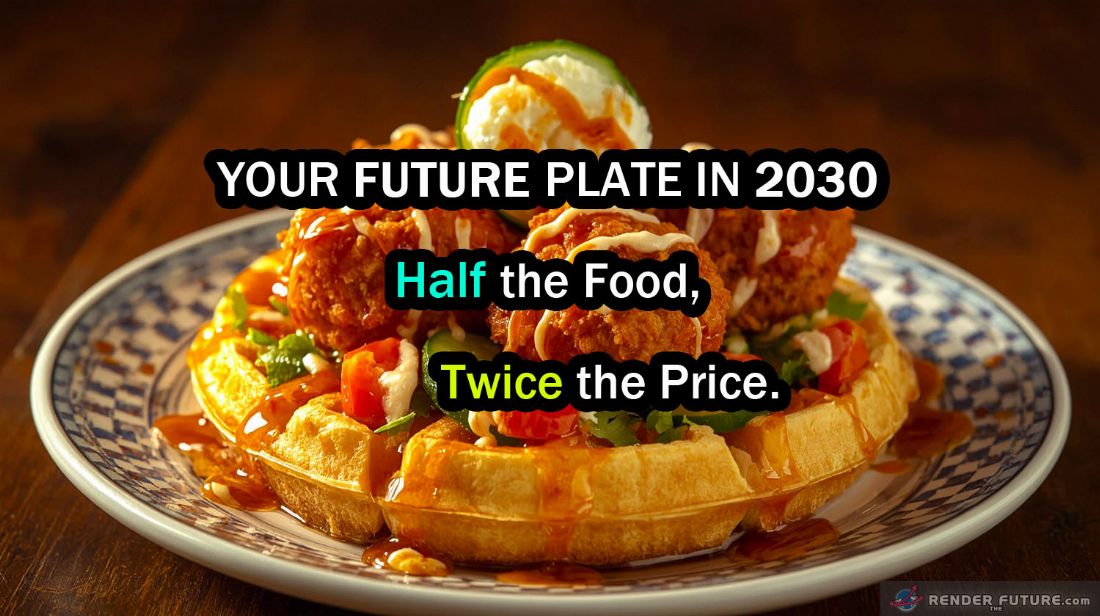
The Fields Are Burning
Rising temperatures have turned once-fertile growing regions into baking sheets where crops literally wither before harvest. Extreme droughts now last not seasons but years—the American West’s “megadrought” is the worst in 1,200 years, emptying reservoirs and forcing farmers to abandon entire fields.
Meanwhile, chaotic weather delivers knockout punches: floods drown Midwest corn the week before harvest, hailstorms shred Italian olive groves, and unseasonal frosts wipe out French vineyards overnight. The result? Global wheat reserves have hit 15-year lows while coffee production is in freefall—your morning latte could soon cost as much as your lunch.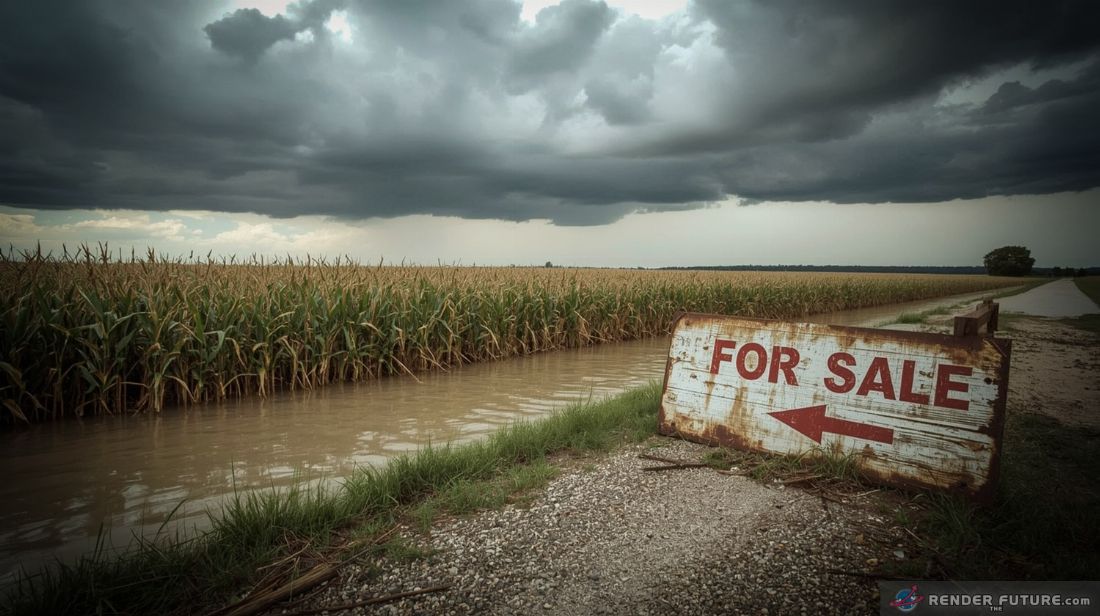
From Farm to Fork to Financial Shock
These climate blows ripple through supply chains with brutal efficiency. Dried-up rivers strand cargo barges, heatwaves force warehouse closures, and diesel-fueled trucks become prohibitively expensive to operate. Supermarkets now cope with “empty shelf syndrome” – one week it’s no romaine lettuce due to California droughts, the next it’s missing Sriracha because Mexican chili crops failed.
The UN estimates climate disruptions could push another 80 million people into hunger by 2050, but even affluent shoppers now face sticker shock: eggs up 138%, olive oil up 240%, and chocolate becoming a luxury good. This isn’t inflation—it’s climate pricing, where every bite carries the hidden cost of a planet pushed past its limits.
The Grocery Apocalypse Is Coming – And You’re Already Paying for It
Let’s cut through the denial: that $8 avocado and $12 coffee aren’t flukes – they’re previews. By 2030, climate chaos will turn your supermarket into a luxury boutique. Wheat harvests are collapsing in record heat, cocoa plants are baking in West Africa, and coffee farms are literally moving uphill to survive.
The math is brutal
Half the supply, double the price. Your “cheap” pasta nights? They’re on borrowed time. The real question isn’t if food will get radically expensive – it’s how many meals you’re willing to sacrifice.
The Hidden Tax No One’s Talking About
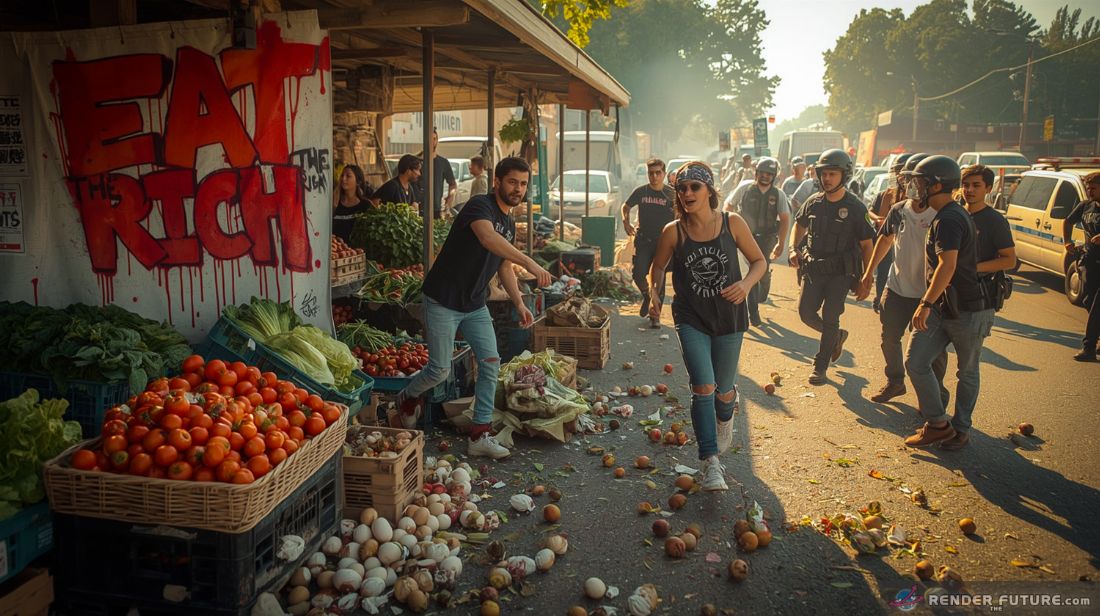 This isn’t just about skipping Starbucks. It’s about systemic shockwaves – restaurants closing, food banks overwhelmed, and a generation that forgets what affordable protein tastes like. The UN predicts climate-driven inflation will hit the poor hardest, but make no mistake: no income bracket is immune.
This isn’t just about skipping Starbucks. It’s about systemic shockwaves – restaurants closing, food banks overwhelmed, and a generation that forgets what affordable protein tastes like. The UN predicts climate-driven inflation will hit the poor hardest, but make no mistake: no income bracket is immune.
Even if you can technically afford $20 bread, you’ll pay in other ways – social unrest, supply chain breakdowns, and a world where “eating local” isn’t trendy, but necessary for survival.
But Here’s the Plot Twist…
The same crisis forcing prices up could also force innovation we’ve delayed for decades. Lab-grown meat. Drought-proof crops. Vertical farms in abandoned warehouses. Climate-smart agriculture could turn cities into food producers, not just consumers. The transition will be ugly, but the silver lining? We’ll finally stop taking food for granted. Let’s dive into a scene where every tomato has a story – and every meal is a act of defiance against scarcity.
The Psychological Cost of Food Anxiety
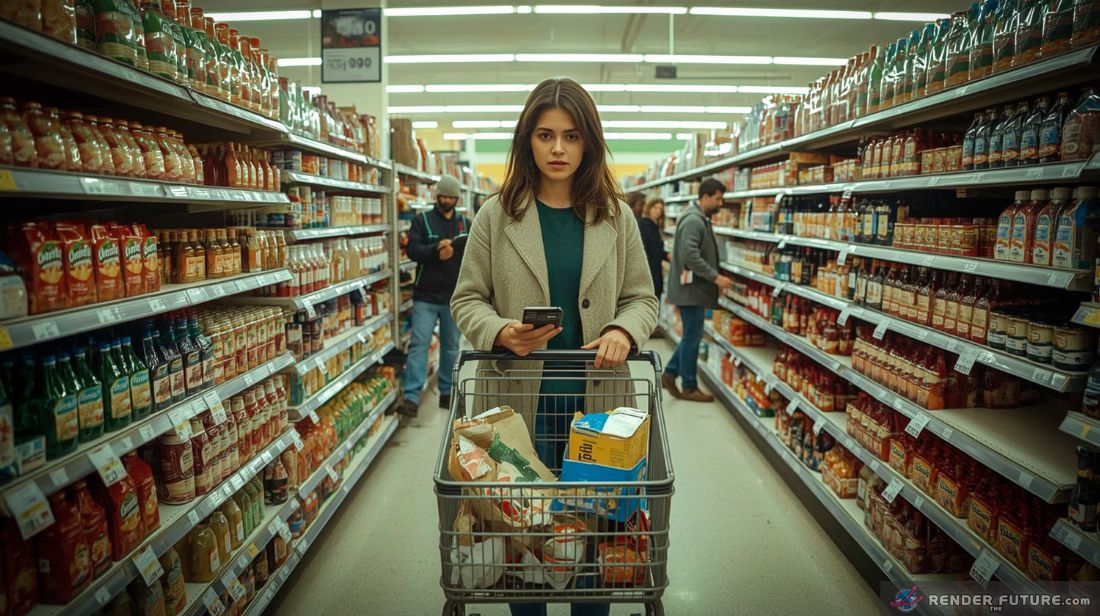 What happens when feeding your family becomes a source of daily stress? Psychologists warn that “food insecurity whiplash” – the emotional toll of unpredictable prices and empty shelves – could become the next public health crisis.
What happens when feeding your family becomes a source of daily stress? Psychologists warn that “food insecurity whiplash” – the emotional toll of unpredictable prices and empty shelves – could become the next public health crisis.
Studies show that financial stress over groceries leads to higher rates of anxiety, poor nutrition choices, and even generational trauma around food. The kids who grow up watching their parents agonize over prices may develop either obsessive frugality or reckless scarcity mindset spending. We’re not just talking about wallets getting thinner – we’re talking about mental health unraveling at the dinner table.
The Black Market Boom You Won’t See Coming
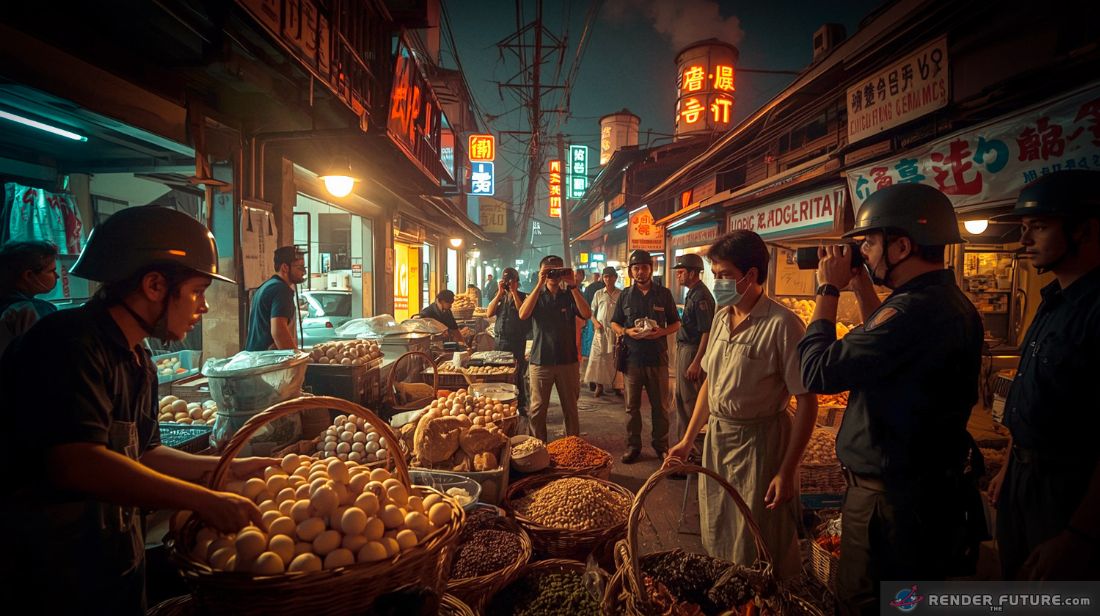 History shows us that when essentials become unaffordable through legal channels, underground economies thrive.
History shows us that when essentials become unaffordable through legal channels, underground economies thrive.
Visualize a future where:
- “Grey market” grocery co-ops bypass tariffs on climate-safe imports
- Backyard chicken coops get raided by “produce police” in water-restricted areas
- Staple foods become currency in barter networks
The irony? The more governments try to control prices, the more they’ll fuel innovation – both brilliant and dangerous. The same human ingenuity that created industrialized agriculture might now dismantle it to survive.
A Radical Opportunity Hidden in the Crisis
What if this is the catalyst we need to finally:
- Break up Big Agriculture monopolies?
- Return to seasonal, regional eating?
- Rebuild community food networks?
The coming hunger games could either fracture society or birth a more resilient one. The choice isn’t between cheap food and expensive food—it’s between clinging to broken systems or growing something new in their place.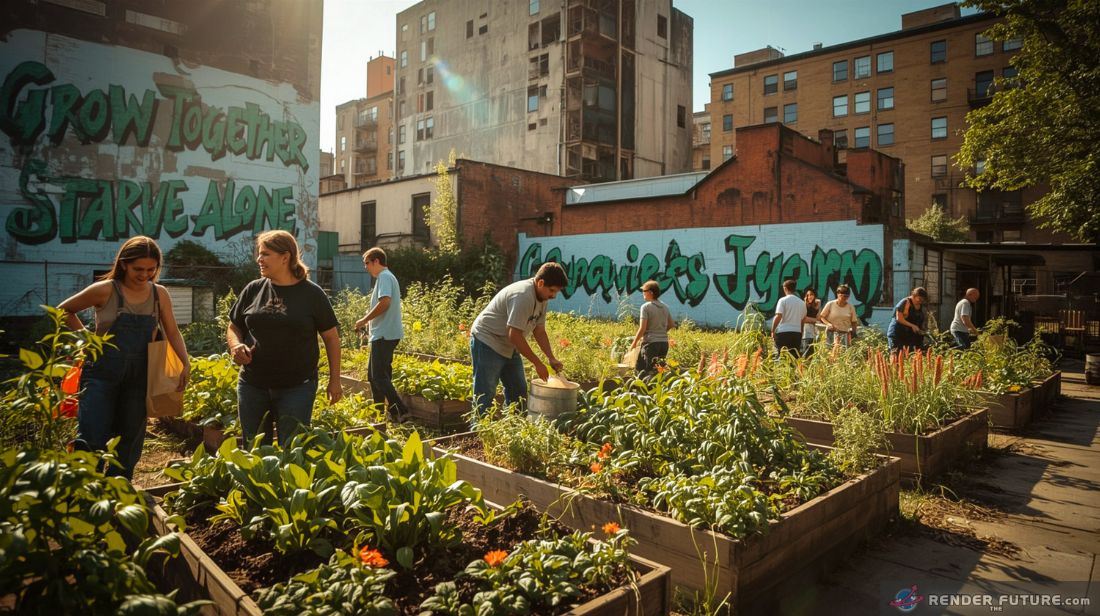
So, Will You Be a Victim or a Pioneer?
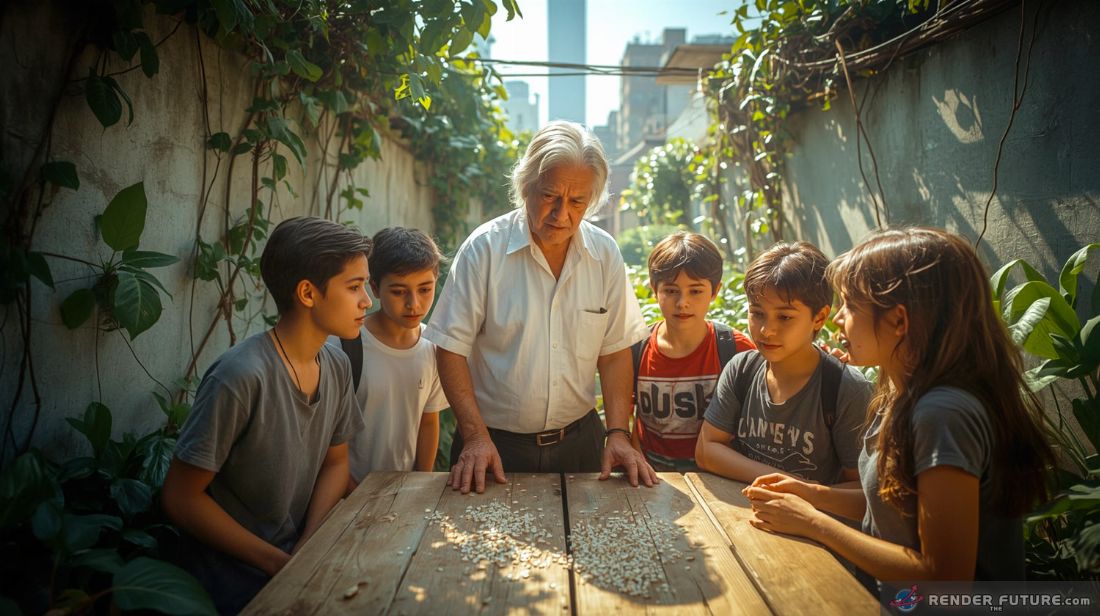
This isn’t just survival – it’s the great rewiring of how we value nourishment.
The secret? Every time you choose a drought-resistant crop, support a local farmer, or repurpose food waste, you’re voting for a tastier, more equitable future. Our grandparents survived wars by planting victory gardens – we’ll beat climate inflation by growing victory pantries in every neighborhood. The coming food revolution won’t just fill stomachs – it will reconnect us to the earth and each other in ways we’d forgotten were possible.
So keep that reusable grocery bag handy.
The future of food is about to get radically delicious.


References:
- IPCC Special Report on Climate Change and Land
- World Bank – “Climate-Smart Agriculture”
- UN FAO – “The Future of Food and Agriculture”
- Nature Sustainability – “Crop Failures and Price Volatility”










